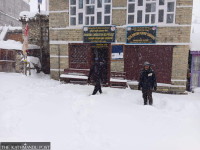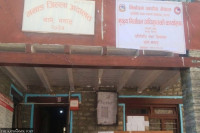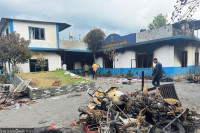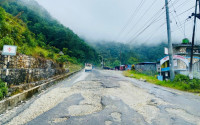Gandaki Province
Two villages in Manang face shortage of salt
Lack of motorable road and arduous trail to the district headquarters make it difficult for Narphabhumi residents to fetch salt all year round.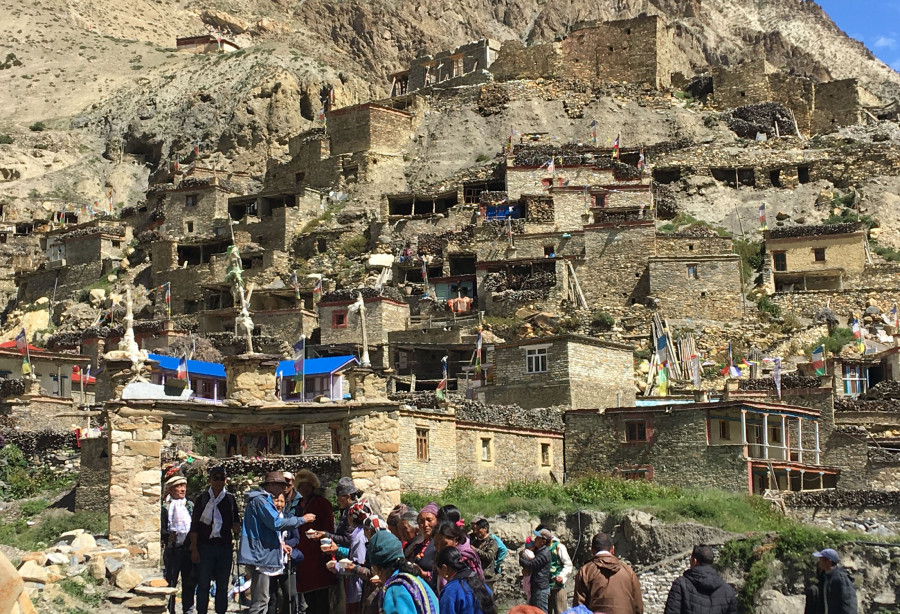
Aash Gurung
The dreary dirt road from the Phu village in rural Manang to the district headquarters in Chame resembles a desert. There are mountains, but no trees. If the trail is ridden with dirt in the summer, it is covered in snow during the winter. It is this trail that the residents of the remote Phu village take to fetch daily essentials, from vegetables and rice to salt.
Phu locals buy government subsidised salt from the depo office of the Salt Trading Corporation in Chame. But to fetch that salt, they have to walk for two days. With government subsidy, one kg salt costs Rs 9 in Chame. But once it reaches Phu village, the same amount of salt costs Rs 41. Often, locals employ mules to carry salt and other goods.
The charge for mules to carry one kg of goods is Rs32, according to Tasikhando Lama, a hotel operator in Phu. “Despite government subsidies, we are compelled to pay exorbitant prices for a kg of salt,” she said. “On top of that, it’s difficult to get salt at the depo sometimes.”
Locals of nearby Naar village face similar problems. In the wake of the 2015 earthquakes, the village suffered an acute shortage of salt. The shortage prevailed during the blockade imposed by the Indian government. During those times, Naar residents made do with boiled potatoes for dinner, said Tenjing Pasang Lama, a local. “Even today, it’s hard to fetch salt, given the winding, dangerous trail,” she said.
After the implementation of the federal system of the government, Naar Village Development Committee and Phu village merged into Narpabhumi Rural Municipality which has a total population of 615.
Chhiringdendo Ghale, the chief of Narpabhumi ward number. 4, said locals are hoping for a border point in Kyangchimmi, Tibet, to open as the shortage of salt continues.
“Until the village gets a motorable road, the problem is bound to persist,” said Mingma Chhiring Sherpa, the chief of Narpabhumi Rural Municipality.




 20.12°C Kathmandu
20.12°C Kathmandu.jpg)
